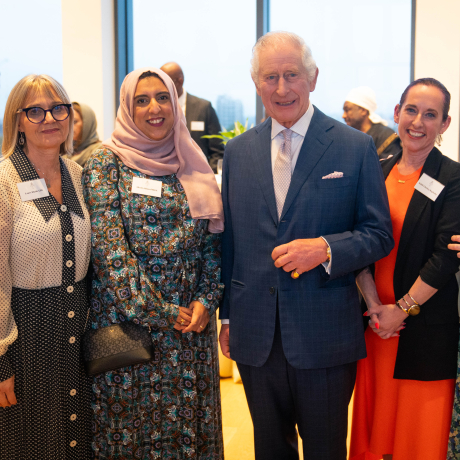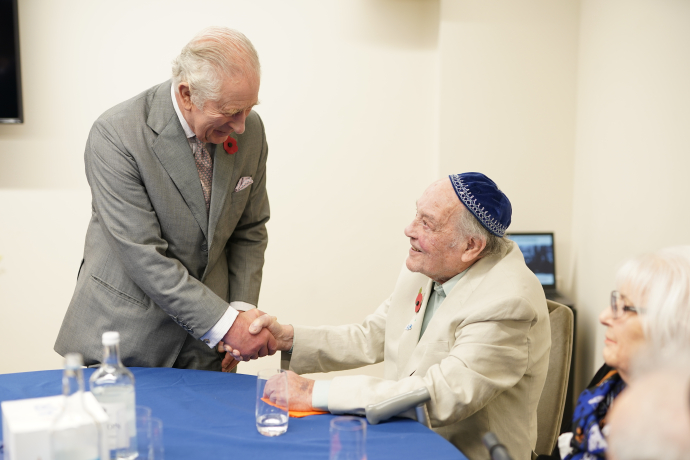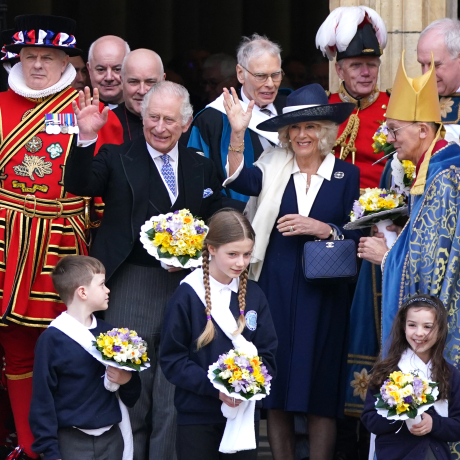The King marks Inter Faith Week with faith leaders at Lambeth Palace Library
Published
To mark Inter Faith Week, The King visited the new Lambeth Palace Library, one of England’s oldest public libraries, where His Majesty joined a reception of faith leaders. The King also viewed an exhibition of interfaith items from Lambeth Palace’s historic collection.
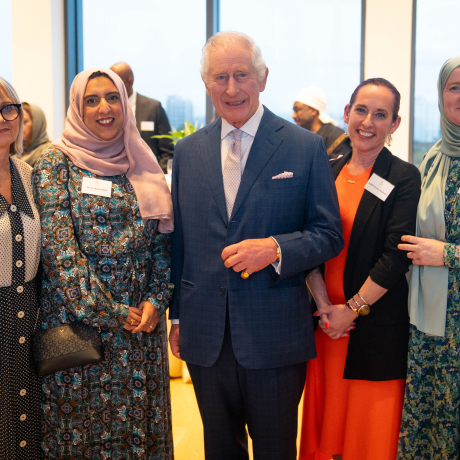
The King arrived at Lambeth Palace Library, which is home to the historic library of the Archbishop of Canterbury and the archives of the Church of England. The new purpose-built building, which opened in 2021, will ensure that the collections are preserved and accessible for generations to come.
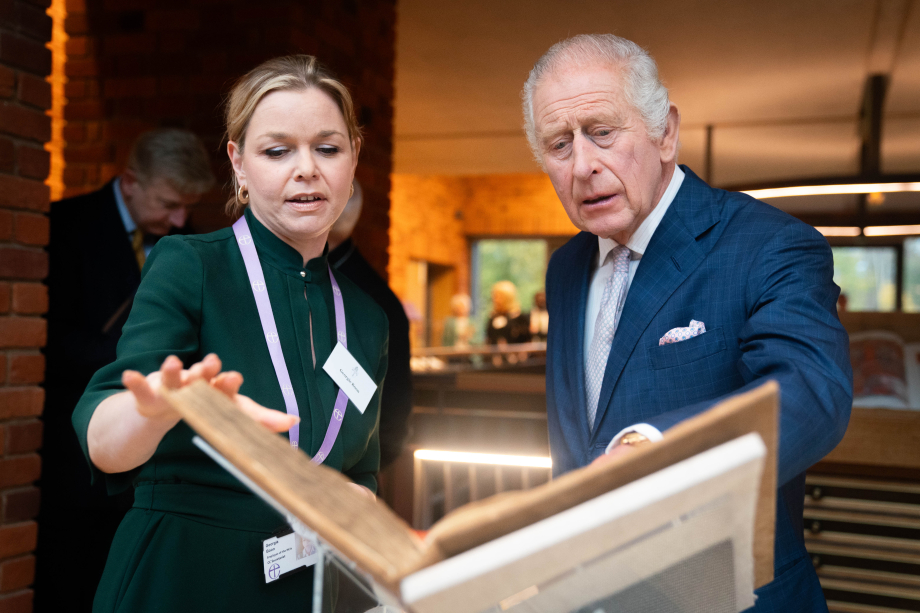
As Prince of Wales, The King has worked for many years to promote tolerance and greater understanding between different faiths and communities. In His Majesty’s first address to the Nation and the Commonwealth, The King spoke of his continued desire to serve everyone with loyalty, respect and love, whatever their background or beliefs.
During the visit, The King, accompanied by the Archbishop of Canterbury, met senior staff from Lambeth Palace and the Library, viewing displays of interfaith items from the Library’s collection.
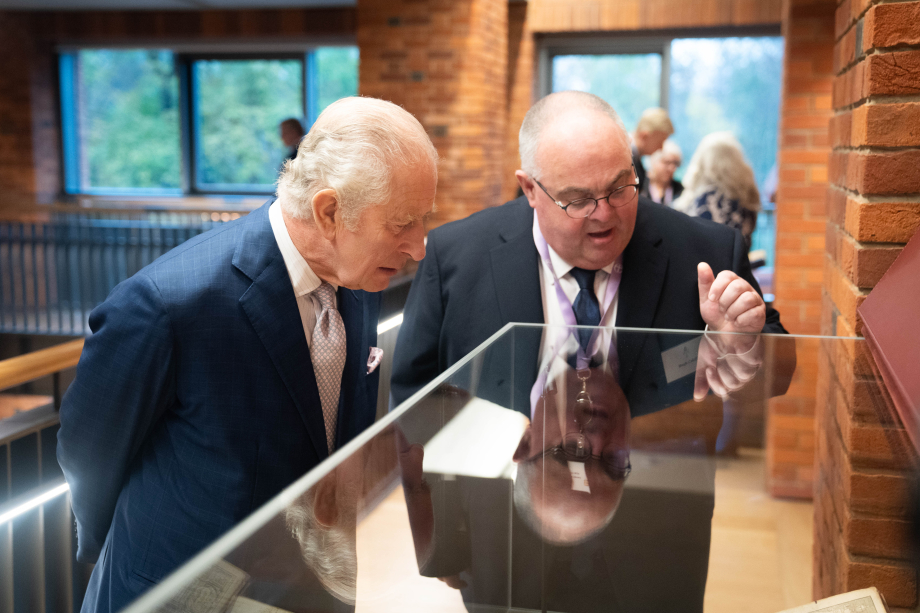
The Library was founded in 1610 by Archbishop Richard Bancroft and is one of England’s oldest public libraries, with its collection having been freely available for research since its establishment.
His Majesty also meet those working on Project Spire which is being carried out by The Church Commissioners. Project Spire is ongoing research which seeks to gain an improved understanding of the links between the Church of England’s endowment fund (historically known as Queen Anne’s Bounty) and transatlantic chattel slavery.
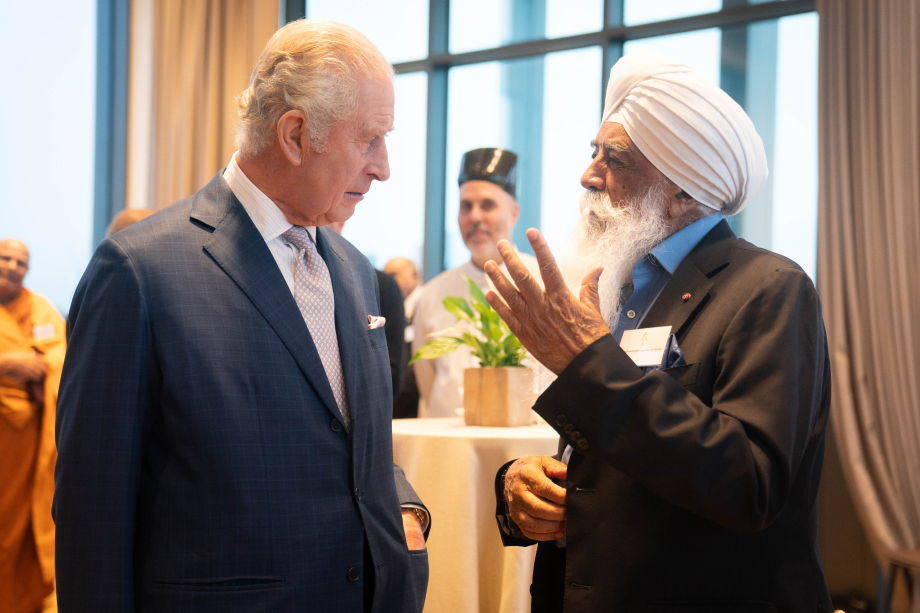
His Majesty later joined a reception with leaders from across the UK’s faith communities, signing Lambeth Palace Library’s visitors book.
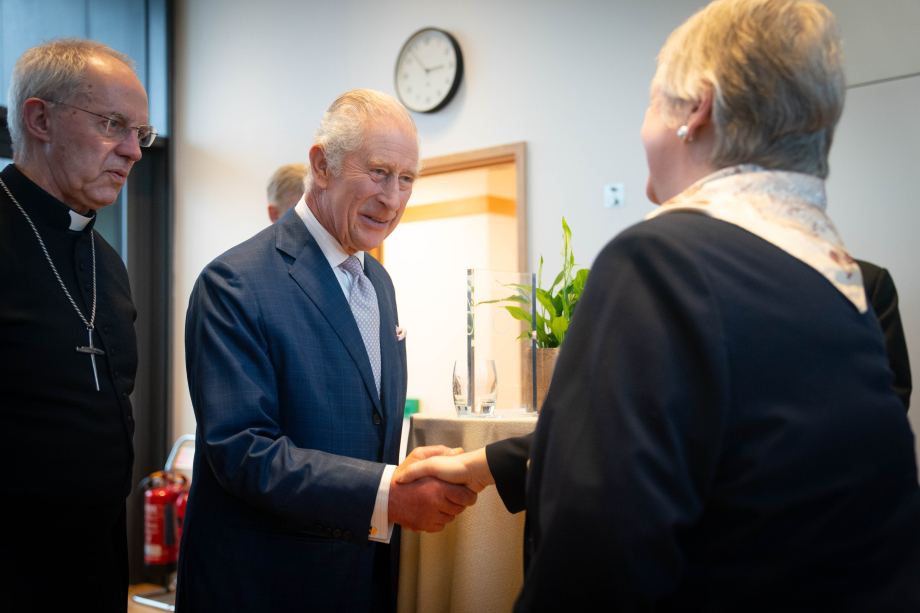
Each year, Inter Faith Week begins on Remembrance Sunday, and runs until the following Sunday. It aims to strengthen inter faith relations at all levels, and to increase awareness of the different and distinct faith communities in the UK, celebrating and building on the contribution which their members make to their neighbourhoods and to wider society. It also works to foster greater understanding between people of religious and non-religious beliefs.

